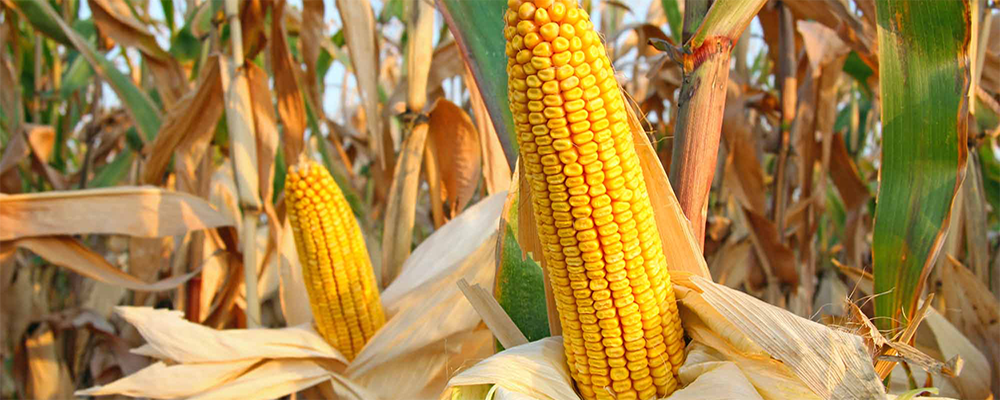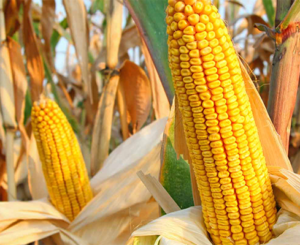
The Periscope Report trade related news round-up from a variety of sources for 09th April 2017.
[Zimbabwe] US$525m spent on grain imports
 GRAIN imports have haemorrhaged more than US$525 million from Zimbabwe’s economy in the two years to 2016, grain millers say. About 70 percent of the amount – US$390 million – was spent last year as Government reacted to the El Nino-induced drought. Overall, it is estimated Zimbabwe could have spent US$7 billion on grain and grain-related imports over the past 15 years. Grain Millers Association of Zimbabwe chair Mr Tafadzwa Musarara said last week Government and the private sector were working to eliminate wheat and maize imports. “From January 2015 to March 2017, the country (Government, NGOs and the private sector) imported circa 1,4 million tonnes of maize at an estimated value of circa US$525 million. Of that amount, US$390 million was imported in 2016. “The impact of this gigantic maize import quantum to the country’s balance of payment is extremely negative. The country was importing the staple grain much more than Syria, which was at war. “The difference, of course, is that Syria had a full import cover and our Strategic Grain Reserve was severely depleted. Definitely such situation is unsustainable in national food security matrix,” said Mr Musarara.
GRAIN imports have haemorrhaged more than US$525 million from Zimbabwe’s economy in the two years to 2016, grain millers say. About 70 percent of the amount – US$390 million – was spent last year as Government reacted to the El Nino-induced drought. Overall, it is estimated Zimbabwe could have spent US$7 billion on grain and grain-related imports over the past 15 years. Grain Millers Association of Zimbabwe chair Mr Tafadzwa Musarara said last week Government and the private sector were working to eliminate wheat and maize imports. “From January 2015 to March 2017, the country (Government, NGOs and the private sector) imported circa 1,4 million tonnes of maize at an estimated value of circa US$525 million. Of that amount, US$390 million was imported in 2016. “The impact of this gigantic maize import quantum to the country’s balance of payment is extremely negative. The country was importing the staple grain much more than Syria, which was at war. “The difference, of course, is that Syria had a full import cover and our Strategic Grain Reserve was severely depleted. Definitely such situation is unsustainable in national food security matrix,” said Mr Musarara.
Namibia takes more exhibition space at ZITF
NAMIBIA, whose President will officially open this year’s Zimbabwe International Trade Fair (ZITF) has increased its exhibition space in a clear testimony of its commitment towards gracing the country’s premier business showcase. ZITF Company general manager Mrs Nomathemba Ndlovu said Namibia has always been a loyal and committed ZITF exhibitor with over two decades of continuous participation at the show. “Their (Namibia) support extends to other exhibitions we host such as Mine Entra and Sanganai/ Hlanganani Africa Business Tourism Expo . . . ,” said Mrs Ndlovu. Namibian President Hage Gottfried Geingob will officially open this year’s 58th edition of the ZITF on 28 April. This year’s showcase which will run from 25 to 29 April will be held under the theme: “Harnessing Linkages for Industrial Development”.
[Zimbabwe] Govt soont to release new Industrial Development Policy
THE Government will soon release a new Industrial Development Policy (IDP), which is set to be a guideline on how the country intends to revive its industrial and manufacturing sectors. Industry and Commerce Deputy Minister Chiratidzo Mabuwa said the new IDP (2017-2021) which succeeds the IDP (2012-2016) was formalised by the ministry and is awaiting Cabinet approval. “It’s on the cards and coming up very well. We have had support from development partners and we are expecting it to go through Cabinet soon and then it will be made public,” she said. She said the overall objective for the Government under the IDP (2017-2021) would be to restore the manufacturing sector’s contribution to Gross Domestic Product doubling to 30 percent and its contribution to exports increased to 50 percent from 26 percent. Deputy Minister Mabuwa said the key principles of the IDP are plant, equipment and skills audit, import substitution, value-addition or beneficiation, technology transfer and research and development, and exports of value-added products.
Brazilian meat scandal to spur Buy Zimbabwe
ZIMBABWEANS must fully embrace the Buy Zimbabwe initiative since reports that Brazil has been exporting condemned meat products show that locals could have been exposed to unsafe imported products. The country has joined a number of countries throughout the world that have temporarily banned meat imports from Brazil in the wake of reports that the South American country has been exporting bad products over the years.Some of the countries that have banned the imports include China, South Africa, South Korea, Chile and a number of EU countries. It is alleged that Brazil’s major meat-packing businesses bribed inspectors to get health certificates and masked tainted meat as fit for consumption in various parts of the world. In some instances, investigators said inspectors allowed employees to use government computers to issue their own export licenses. Among the more than 30 companies implicated are JBS, the world’s largest beef exporter, and BRF, the world’s largest poultry exporter. They are both accused of using chemicals or mixing in healthy meat to obscure poor quality meat.
Levelling the trading field for SMEs
THE latest World Trade Report of the World Trade Organisation (WTO) focuses on the participation of Small and Medium-sized Enterprises (SMEs) in international trade. SMEs are usually defined as firms employing between 10 and 250 people whereas those with less than 10 employees are classified as micro firms. Micro, Small and Medium-sized Enterprises (MSMEs) are estimated to constitute more than 95 percent of all enterprises in developing countries. About 80 percent of all MSMEs in developing countries and Least Developed Countries (LDCs) are classified as micro firms. According to the Report, most micro firms (85 percent) and SMEs (72 percent) operate in the trade and services sectors. SMEs are also a large source of employment. In a majority of countries, SMEs contribute more than two-thirds of formal non-agricultural private employment. However, SMEs pay in general lower wages, provide less job security and are less likely to offer training to employees than large firms.
New procurement policy gets thumbs up
CAPTAINS of industry have said the Public Procurement and Disposal of Public Asset Policy will promote the local procurement of goods as well as curb underhand dealings in the acquisition of assets by Government and its various departments. The Public Procurement and Disposal of Public Asset Bill sailed through the committee stage in the National Assembly two weeks ago and is now before the Parliamentary Legal Committee to check for its constitutionality. The Bill would ensure that evaluation of bids by procuring entities gives preference to bids from Zimbabwean or local suppliers and manufacturers. The Bill was also expected to ease the extent to which Zimbabwean or local suppliers and manufacturers participate in the supply of goods, and construction works and services in accordance with provisions in the Indigenisation and Economic Empowerment Act. Confederation of Zimbabwe Industries president Mr Busisa Moyo said the enactment of the Public Procurement and Disposal of Public Asset was likely to improve productivity and viability of local manufacturers as well as create more employment opportunities.